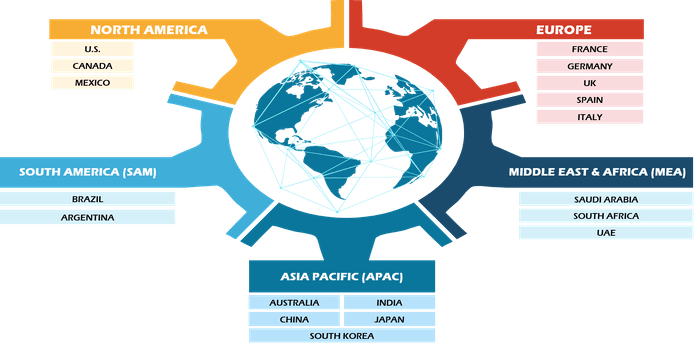In recent times, artificial intelligence (AI) has brought about a profound revolution across various facets of our lives, reshaping our work dynamics and interactions with technology. Although concerns have arisen about AI potentially supplanting human workers, a prevailing perspective suggests that AI can actually be a catalyst for generating fresh employment opportunities. Here’s how AI can actively contribute to job creation:
Automation and Transforming Work
AI possesses the capacity to streamline and mechanize a multitude of repetitive and manual tasks that involve minimal creativity and critical thinking. This, in turn, empowers employees to direct their attention towards more substantial and high-value endeavors. For example, within the manufacturing and logistics sectors, AI can automate assembly processes, thereby enabling workers to engage in activities like design, quality control, and managerial roles.
Furthermore, AI has the potential to enhance the efficiency and precision of decision-making tasks. AI systems possess the capability to sift through extensive data sets and provide insightful recommendations to boost productivity and effectiveness in business operations. However, this does necessitate new skillsets among workers, including the ability to interpret and leverage the insights generated by AI.
Emerging Opportunities in the AI Arena
While AI may diminish the demand for certain roles, it simultaneously ushers in fresh employment prospects in previously uncharted domains. For instance, the creation and advancement of AI systems necessitate the expertise of machine learning engineers, data scientists, and specialized researchers. These professionals are increasingly sought after and rewarded lucratively.
Moreover, the implementation of AI also calls for the involvement of AI ethics and cybersecurity specialists. With a growing awareness of the ethical implications surrounding AI, there is a demand for ethics experts to ensure that AI-driven decisions align with moral and societal principles. Concurrently, the security challenges associated with AI underline the importance of cybersecurity experts in safeguarding systems from external threats.
Revitalizing and Redefining Conventional Sectors
AI can also play a pivotal role in rejuvenating and redefining traditional sectors, offering fresh avenues for employment. Take, for example, the healthcare sector, where AI can elevate medical diagnoses, expedite drug discovery, and bolster telemedicine. This gives rise to professions such as “health data analysts” who interpret and analyze data gathered by AI systems to furnish more precise and personalized diagnoses.
Similarly, in agriculture, AI can optimize crop management, monitor plant health, and predict weather conditions to enhance agricultural yields. This presents opportunities for novel roles such as “agrotechnologists” who amalgamate agricultural expertise with advanced AI knowledge to maximize efficiency and sustainability in the industry.
Entrepreneurship
AI is also unlocking opportunities in unconventional roles and entrepreneurship. Individuals now have access to AI-driven tools and resources, enabling them to establish businesses founded on innovative and tailor-made solutions. For instance, AI-powered e-commerce platforms empower small-business owners to reach global customers, offering unique products and services.
Invaluable Human Skills
Despite the rapid strides made in AI, there exist certain quintessential human skills that remain irreplaceable by machines. Leadership acumen, creativity, intricate problem-solving abilities, and empathy are just a few of the qualities that will continue to be in high demand in the job market. AI can complement and assist workers in these domains but cannot wholly substitute them.
Furthermore, human interaction and the art of building customer relations remain pivotal in numerous sectors. Despite the automation of processes, human workers will always be indispensable in providing personalized service, comprehending customer needs, and managing intricate situations that necessitate intuition and interpersonal skills.
Expert in AI while studying Psychology at Australia’s Premier University:
In the ever-evolving landscape of artificial intelligence (AI), it’s noteworthy that individuals from diverse academic backgrounds are harnessing the power of AI to complement their expertise. Psychology university in Australia is top-tier delving deep into the realms of AI. This scenario epitomizes the interdisciplinary nature of AI’s influence. As this student navigates the complexities of the human mind and behavior, they are simultaneously acquiring the skills to analyze vast data sets, extract meaningful insights, and develop AI-driven solutions to address psychological challenges. This unique blend of psychology and AI expertise positions them as a potential trailblazer in fields like mental health analytics, emotion recognition technology, or AI-driven therapy tools, bridging the gap between human understanding and machine intelligence.
Get All Your Engineering Assignment Help in Australia:
When it comes to academic pursuits, engineering students in Australia have a valuable resource at their disposal – comprehensive engineering assignment help Australia services. These services cater to the needs of engineering scholars across various disciplines, offering expert guidance and support in tackling complex assignments and projects. Whether you’re grappling with structural analysis, electrical circuits, or software development tasks, these services connect you with experienced engineering professionals who can provide step-by-step assistance. With their in-depth subject knowledge and practical insights, they not only ensure the timely completion of assignments but also aid in enhancing your understanding of crucial engineering concepts. So, if you find yourself facing engineering challenges in the land Down Under, rest assured that there’s a reliable source to turn to for academic assistance, ensuring your journey through engineering studies is a smoother and more successful one.
Conclusion
While the advent of AI may bring about a transformation in existing job roles, it also ushers in new vistas of employment. The automation of repetitive tasks, the emergence of fresh sectors, and the demand for AI-related expertise all contribute to the creation of novel jobs.
It is imperative for workers to adapt to this evolving landscape by acquiring updated skills and harnessing the potential of AI to augment their work capabilities. AI undeniably has the potential to generate new employment opportunities, provided there is a harmonious synergy between artificial intelligence and human skills.





